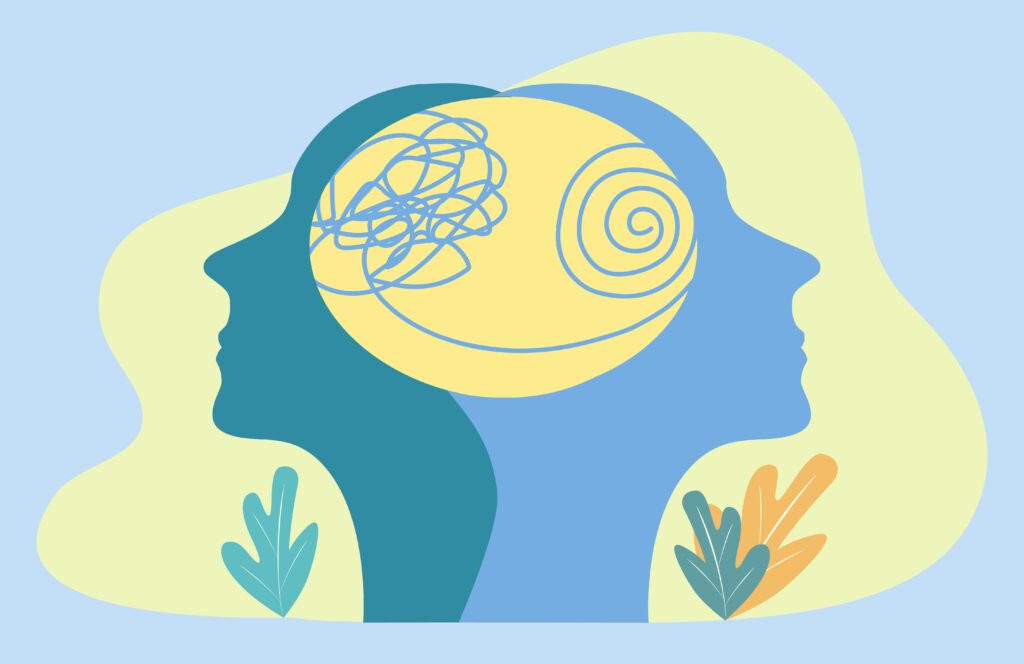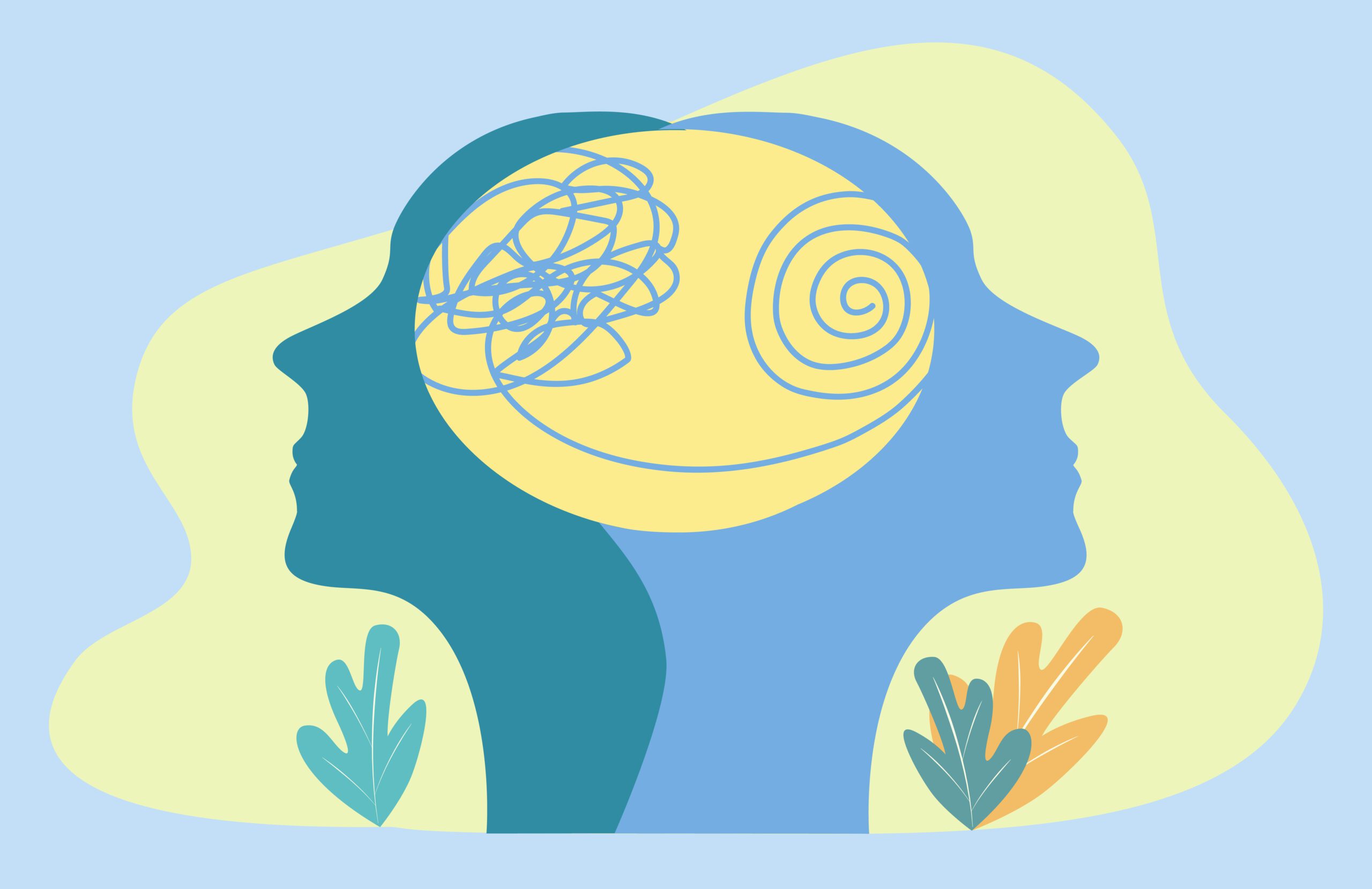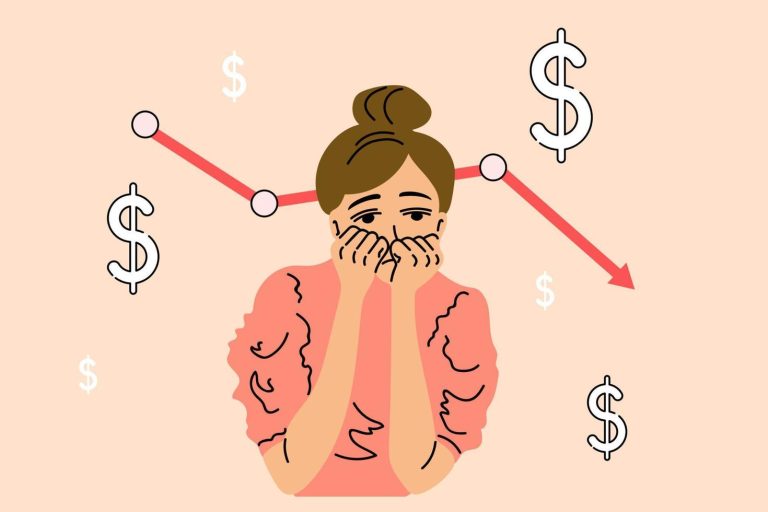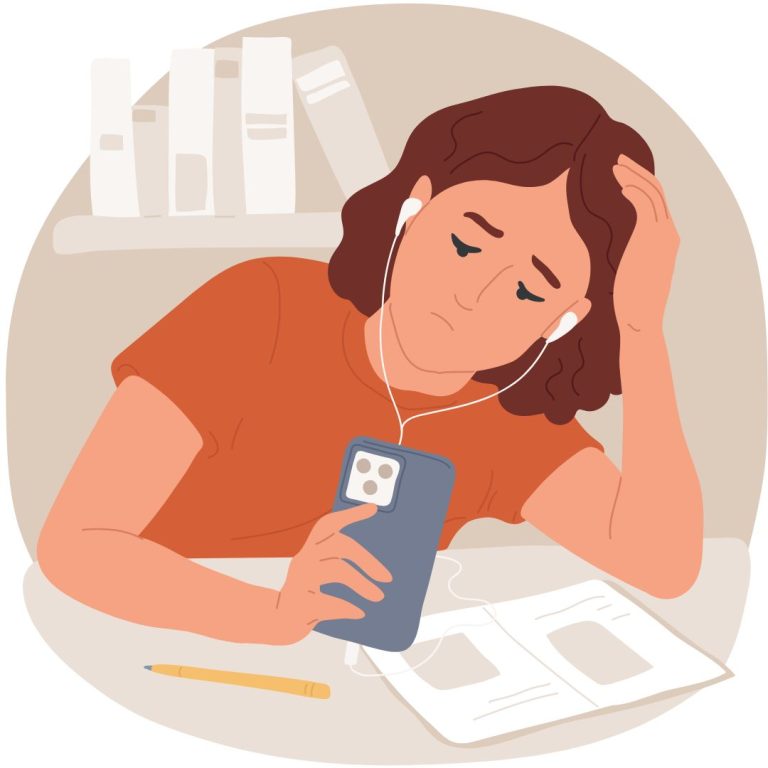The riot of sneaky bad habits and the obvious ones can take a toll on your mental health, leaving you baffled and disorganized in many areas of life. Identifying those worst things for mental health and then quitting them has a whole other set of complications that disturbs your peace. That is why I am here to help you explore the 12 bad habits for mental health and suggest strategies to get rid of them.

Source: Maria Stavreva/Getty Images
How Do Bad Habits Affect Mental Health?
Some of our daily habits are the main culprits of why we feel so sad and depressed all the time. (1) Till a few weeks ago, I used to find myself reflecting on the ‘carefree’ part of my life when I used to feel the happiest.
Snapchat memories can really take you down a road of deep self-reflection. The smile in all of my pictures seemed natural. It left me wondering what went wrong? That’s when I figured that my sleep schedule and eating times were not as compromised as they were of late.
This small realization that apparently a ‘not-so-bad’ routine had become my worst habit encouraged me to get back on my routine. I won’t lie. It’s been three weeks and I already feel more productive and happier. This is just a personal example of how do bad habits affect mental health in the long run.
How To Identify The Sneaky Habits?
‘Cigarette smoking is bad for your health.’ It’s written right on the package but people still do it. This is an example of the obvious worst habit for your mental health and physical health because people know, but they still do it.
However, the sneaky ones are the worst of the worst and they can sometimes be trickier to identify. They can so subtly become a part of your daily routine and make it seem like they are actually working for you while sneakily causing more damage to your physical and mental well-being. (2)
Let’s help you identify your sneaky habits with this checklist:
☐ Are your usual tasks taking you longer to complete because of some distractions daily?
☐ Are you frequently checking your phone or emails for updates?
☐ Does it feel like your productivity has been compromised lately, especially since you started doing (any activity that you indulge in during work)?
☐ Do you feel burnout or physically exhausted most of the time despite sleeping for a good long hour?
☐ Do you feel mentally exhausted lately? If yes, has something changed in your house environment or your daily routine?
☐ Do you feel less satisfied with your work output or anything that used to make you feel more satisfied?
☐ Do you often sidestep responsibilities or avoid replacing priority tasks for the easier ones?
You may need to go through these 12 Strategic Hacks To Managing Emotional Triggers And Become Calm for a mentally healthy you.
Why Is It So Hard To Break Free Of The Bad Habits?

Source: iStock
Habits are, by definition, such actions that we do so often that they have become automatic. We do a certain thing without putting a thought in it or taking a moment to step back and reflect on the consequences it will impart on our mental health.
Alana Mendelsohn in her article “Creatures of Habit: The Neuroscience of Habit and Purposeful Behavior,” defines these worst things for your mental health as shortcuts that help us do things more easily. They make it easier for us to decide what to do each day and save energy for more important things. (3)
Well, we don’t want to save any more energy because the apocalypse is not coming anytime soon. So get ready to learn about 12 worst habits for your mental health and rid yourselves of them.
12 Worst Habits For Your Mental Health
1. Always Staying Indoors
Spending excessive amounts of time indoors can have detrimental effects on your mental health. Limited exposure to sunlight can disrupt your circadian rhythm, leading to sleep disturbances and mood swings. Additionally, lack of physical activity can contribute to feelings of lethargy, anxiety, and depression. (4)
Research has consistently linked regular physical activity to improved mental health outcomes. Engaging in outdoor activities, such as walking, hiking, or gardening, can provide numerous benefits, including increased mood, reduced stress, and enhanced cognitive function.
The renowned psychologist William James once stated, “Healthy minds require healthy bodies,” and I find it truly inspiring. Prioritizing physical activity and spending time outdoors can significantly improve your mental well-being.
2. OVER-CAPTURING The Moments
In today’s “Instagram world”, it’s easy to become overly reliant on photography to capture every moment of our lives. Documenting our experiences can be a valuable way to preserve memories. However, excessive photography can have unintended consequences for our mental health. (5)
It can lead to a sense of constant comparison and FOMO. We fall prey to constantly comparing our lives to the carefully curated images of others online which can contribute to feelings of inadequacy and low self-esteem. And the pressure to capture every single moment can detract from our ability to fully enjoy and be present in the experience itself.
As the renowned photographer Henri Cartier-Bresson once said, “Photography is not about making pretty pictures; it’s about capturing moments.” So focus on capturing the essence of a moment rather than every detail. This way, we can cultivate a more mindful and fulfilling approach to photography.
3. Slouching While Walking
Slouching, a minor postural habit, can have a significant impact on your mental health. When you slouch, you project an image of low confidence and self-esteem, which can negatively affect your mood and self-perception. (5)
Studies have shown that maintaining an upright posture can improve mood, reduce stress, and boost self-confidence. Slouching, on the other hand, can lead to feelings of anxiety, depression, and even physical pain.
As the famous philosopher Friedrich Nietzsche once said, “Your posture reflects your thoughts.” Stand tall at all times and maintain an upright posture to cultivate a more positive and confident mindset.
4. Living A Messy Life
A messy home can make you feel stressed, anxious, and overwhelmed. When there’s stuff everywhere, it’s hard to focus and get things done. This can make you feel down and tired. (4)
Studies show that a messy environment can make it harder to focus, concentrate, and be productive. The constant visual chaos can be distracting and overwhelming, making it harder to complete tasks and achieve goals.
To feel better, try to declutter your physical environment. This can help you reduce stress, improve your mood, and create a more peaceful and productive living space.
5. Living a Mentally Cluttered Life
Just like your home can get messy, so can your mind. When your thoughts are disorganized, racing, or filled with negative self-talk, it can create a mental clutter that can significantly impact your well-being.
Mental clutter can manifest in various ways, such as racing thoughts, rumination, and constant worry. This can make you feel anxious, depressed, and less productive.
To declutter your mind, consider practicing mindfulness techniques, such as meditation or deep breathing. These practices can help you focus on the present moment, reduce stress, and improve your overall mental health. Additionally, engaging in activities that promote relaxation and enjoyment can help clear your mind and reduce mental clutter.
6. Always On The Phone
It’s hard to imagine life without our smartphones. But using your phone too much can make you feel anxious, stressed, and lonely. One of the biggest problems with abusing smartphones is that they can mess up your sleep. The blue light can make it harder to fall and stay asleep, which makes you feel tired, irritable, and have trouble concentrating.
Another problem is that using your phone too much can make you feel lonely and isolated. While technology has connected us it can also make us feel disconnected from real-life interactions. Spending too much time on your phone can limit face-to-face interactions and make it harder to develop meaningful relationships.
Also, the constant stream of notifications and information can make you feel overwhelmed and anxious. This can lead to burnout, decreased productivity, and difficulty managing stress.
It’s important to set limits on your screen time. Try to minimize phone use during meals, social gatherings, and before bed. Encourage yourself to do things that don’t involve screens, like reading, spending time in nature, or exercising. Use your phone in a healthier way to improve your mental health and overall well-being.
7. Self-Sabotaging With Failure Mindset
A failure mindset can really hurt your mental health and overall well-being. It’s when you believe you’re not good enough and that things will always go wrong. This negative thinking can make you feel inadequate, afraid of failure, and unmotivated. (6)
When you have a failure mindset, you’re more likely to give up easily when things get tough. You might avoid taking risks or pursuing your goals because you’re afraid you’ll fail. This can limit your opportunities for growth and happiness.
To overcome a failure mindset, try to focus on learning from your mistakes instead of dwelling on them. Celebrate your successes, no matter how small, and build your self-confidence. By having a growth mindset, you can become more resilient and overcome the negative effects of a failure mindset.
8. Revenge Procrastination
Revenge procrastination is when you intentionally delay doing something as a punishment for yourself. It’s a way of expressing frustration or anger towards yourself or others. While it might feel good in the short term, revenge procrastination can have long-term negative consequences for your mental health and productivity.
When you procrastinate, you might feel guilty, ashamed, and anxious. This can create a vicious cycle of procrastination and self-punishment. Additionally, procrastination can hinder your ability to achieve your goals and can negatively impact your relationships with others.
To overcome revenge procrastination, it’s important to understand the underlying emotions that are driving this behavior. Once you understand the root cause, you can develop healthier coping mechanisms for dealing with negative emotions. Additionally, breaking down tasks into smaller, more manageable steps can make them less overwhelming and reduce the temptation to procrastinate.
9. Being Codependent
Co-dependency is an unhealthy relationship pattern characterized by an excessive emotional dependence on another person. It involves a fear of abandonment, a need to control others, and difficulty setting boundaries.
Codependency is one of the worst habits to cause depression that can have a significant negative impact on your mental health and relationships.
When you are co-dependent, you might find yourself constantly seeking approval and validation from others. This can lead to feelings of insecurity, low self-esteem, and a lack of autonomy. Additionally, codependency can create toxic and unhealthy relationships, as you may be more likely to tolerate abusive or manipulative behavior. (6)
Overcoming codependency requires self-awareness, personal growth, and healthy boundaries. It’s important to develop a sense of self-worth and learn to rely on yourself for emotional support. Additionally, seeking professional help can be beneficial for individuals struggling with codependency.
10. Lack of Physical Activity
Who doesn’t love a good workout? It’s not just for your body, but for your mind too! Studies show that exercise can boost your mood, reduce stress, and even improve your brainpower.
When you’re inactive, you might feel down, anxious, or have low self-esteem. It can also lead to weight gain, which can make you feel even worse. But when you’re physically fit, you’re more likely to feel confident and capable.
So, aim for at least 30 minutes of exercise most days of the week. Find something you enjoy, whether it’s walking, running, dancing, or swimming. Remember, even a little bit can make a big difference.
11. Thinking Less of Yourself
Underestimating yourself or staying in a toxic relationship are both examples of thinking less of yourself that can really hurt your mental health. When you don’t believe in yourself, you’re less likely to chase your dreams and achieve your goals.
A toxic relationship can also take a toll on your mental health. It can make you feel stressed, anxious, and depressed. If you’re in a relationship, that’s harmful to your well-being, it’s important to seek help and consider leaving.
To improve your self-esteem and break free from toxic relationships, it’s important to focus on your strengths and accomplishments. Surround yourself with positive and supportive people. If you’re struggling with a toxic relationship, seek professional help or support from friends and family.
12. Micromanaging Yourself
Micromanaging yourself is when you are overly critical and demanding of yourself. It’s a habit that can lead to stress, anxiety, and burnout. When you’re constantly striving for perfection, it’s difficult to relax and enjoy life.
Micromanaging yourself can also hinder your productivity. When you’re constantly second-guessing yourself and trying to control every aspect of a situation, it’s difficult to make progress.
To break free from the habit of micromanaging yourself, it’s important to practice self-compassion and acceptance. Learn to set realistic expectations for yourself and celebrate your successes, no matter how small. Additionally, practicing mindfulness techniques can help you focus on the present moment and reduce stress.
It’s Time To Take Action!
The habits that cause depression are mostly self-inflicted, contrary to what our brain wants to believe. It’s not anyone’s actions that make us depressed but ourselves and this list of 12 worst habits for your mental health are a living proof of it.
Here are some actionable steps to replace those harmful habits with positive ones:
- Get outside and enjoy the sunshine.
- Declutter your space and practice mindfulness.
- Spend less time on your phone and do more real-world activities.
- Stop trying to be perfect and focus on enjoying the present moment.
- Believe in yourself and don’t give up.
- Break down tasks into smaller steps and don’t procrastinate.
- Build healthy relationships and avoid depending on others too much.
- Exercise regularly to improve your mood and well-being.
- Believe in yourself and don’t settle for harmful relationships.
- Be kind to yourself and celebrate your successes, no matter how small.
Our happiness depends on our actions and the habits that we let be a part of our lives. So let go of these worst things for mental health and get on with life happy and carefree. Perhaps food will be the deal-breaker for your mental health! Explore these 16 Ultimate Self Care Menu Ideas For A Happier You.






